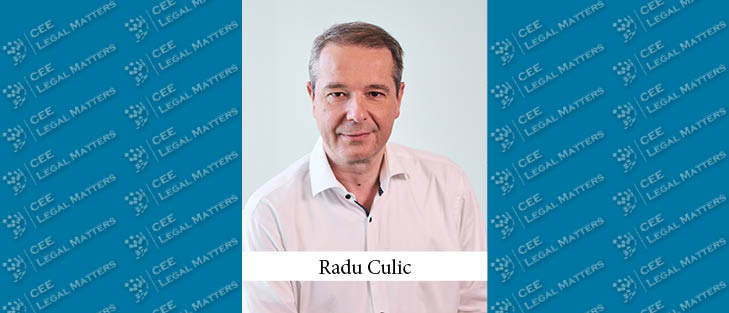With a focus on keeping as much of the legal work in-house, Net-Connect Group Head of Regulatory Affairs Radu Culic discusses best practices for managing in-house legal budgets.
CEELM: Overall, has your in-house legal team’s budget increased, decreased, or has it remained relatively stable?
Culic: Over the past couple of years, the budgets have been pretty stable by doing as much work in-house as possible. By cutting back on how much we rely on external lawyers, we’ve managed to stay on budget. A key part of the general counsels’ role is negotiating that budget internally and knowing where the limits are. One area we can’t compromise on is litigation – whether it’s a small customer complaint or a major dispute involving millions of euros, it’s crucial to handle these cases properly because GCs don’t have the time to be tied up in court.
When working with external lawyers, it’s important to be mindful of their tendency to prefer hourly fees, which can be unpredictable. I push for flat fees instead, as I believe lawyers are experienced enough to assess a project once I provide them with all the necessary details. This approach ensures better financial predictability for my internal finance team. This helps our finance team manage budgets better. I’ve even applied this to litigation, which is trickier because you never know how many court hearings might be needed.
Another challenge is dealing with big fines from different authorities. Court hearings can drag on, and every year the finance team asks: “Do we still need this provision?” My usual answer is: “I don’t know because the case is still ongoing.” It’s just a number in the Excel sheet until the proceedings wrap up and we know if we have to pay it or not.
CEELM: “Do more with less” is a commonly reported pressure on in-house counsel. Do you feel that is reflected in your organization?
Culic: I don’t feel that pressure, even though I’ve heard my peers talk about it. We really need to take a balanced approach here – it largely depends on the complexity of the situation. For instance, when dealing with litigation involving different authorities, I’m okay with proceeding, but who is ultimately making that decision? It’s up to the general counsels to negotiate with the internal stakeholders.
CEELM: If and when there are budget cuts – what are traditionally the first costs you look to trim?
Culic: For us, the key is to focus on what you can handle internally. Since I already prioritize keeping most work in-house, I’m largely spared from having to make tough budget cuts. When 99% of your budget is tied up in litigation – with legislative software and subscriptions being relatively minor expenses – there’s not much left for consultancy. With such a small buffer for external advice, there isn’t much room to cut costs, and any savings for the finance team would be minimal. On the other hand, I normally ensure there’s always some budget for professional development – maybe attending a conference now and then. I’ll try to limit it, but I’d rather not cut it out entirely.
Other than that, it’s normally tough to predict in September or October (when the budget is being drafted) what might happen by July of the subsequent year. The most practical approach is to try to maintain a buffer and reassess at the mid-year point to see if it needs to be adjusted.
If one needs to cut external spending, building in-house capacity is an option. This is especially the case since, for us, salaries fall under a different budget under HR, which makes it easier to focus on the budget itself and address any financial issues.
CEELM: What strategies have you developed over time to argue for new or expanded budget lines internally?
Culic: First, I start with a friendly approach. If that doesn’t work, I present the risks clearly: “If we don’t do this, we could lose X amount.” For example, if competition law fines are 10% of revenue, you can easily calculate the potential loss, and that gets attention quickly. Show the necessity of the investment by emphasizing how it supports business growth. At the end of the day, we’re a support function, and if we want the business to grow, we need the right resources.
Internally, when giving advice, the decision isn’t always up to the General Counsel. For instance, if a Marketing Director wants to pursue a risky idea, I’ll assess the potential risk (fine) and then ask how much they expect to earn from the initiative. If the potential profit outweighs the fine, and it contributes to business growth, then it might be worth taking the risk, however, if the risk is 10% of turnover, the conversation changes.
I believe that a good General Counsel isn’t someone who says “no, because,” but rather “yes, if.” That’s a well-known mantra among GCs.
CEELM: Finally, as you touched upon it, beyond capped fees, what are the best practices when it comes to working with external counsel?
Culic: Be clear about what we need from them. Consultants often try to upsell, but it’s important to just say no and to set clear parameters from the start.
I also don’t find lengthy memos that dive into every detail of the issue useful – I’m already aware of the background, which is why I brought it to the external counsel in the first place. I prefer concise bullet points that get straight to the point, rather than a memo that takes two hours to read. This approach also helps prevent them from billing large amounts for a simple half-page email. This way, they can’t justify billing thousands of euros for a half-page email. But you have to be clear about your expectations from the very beginning.




